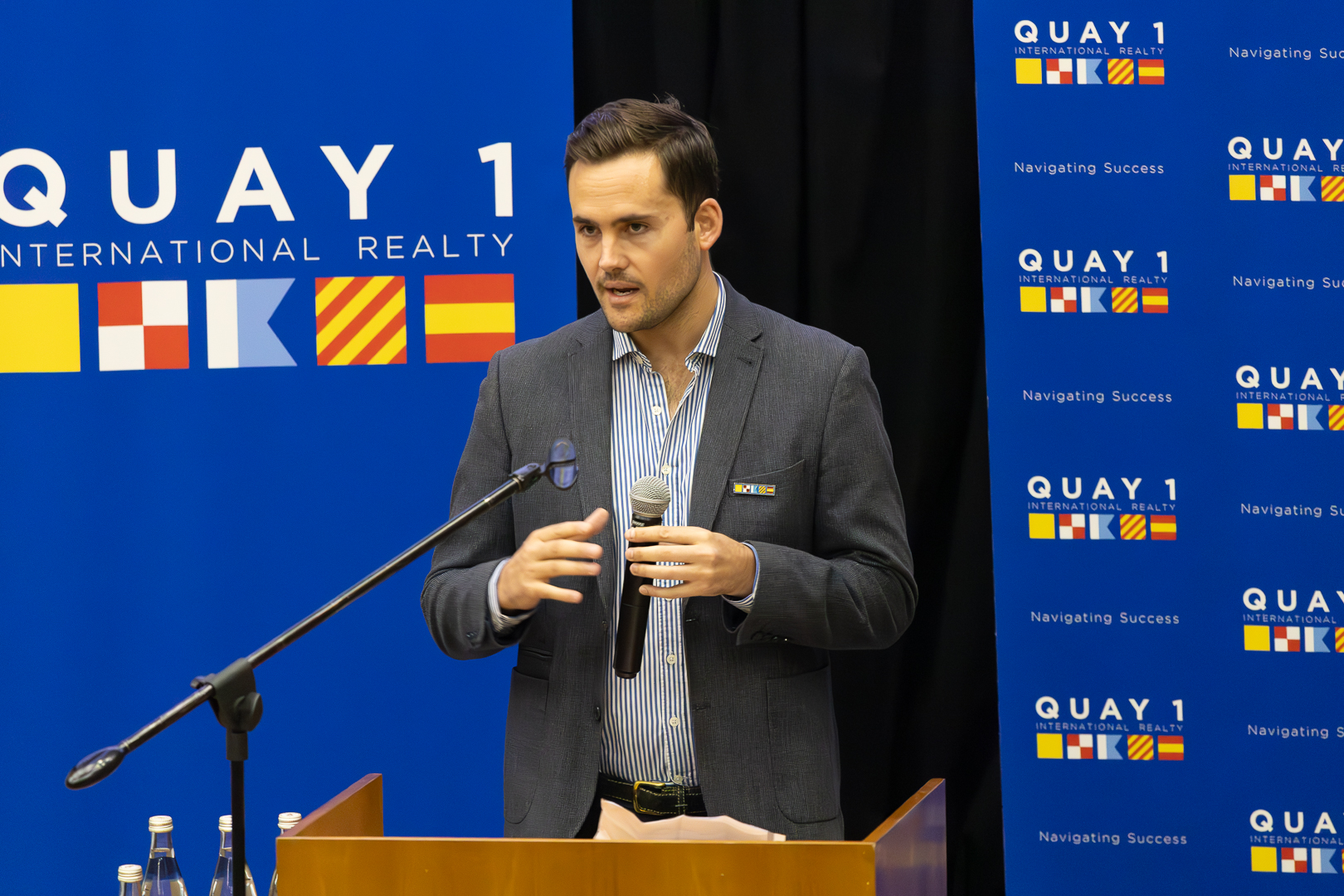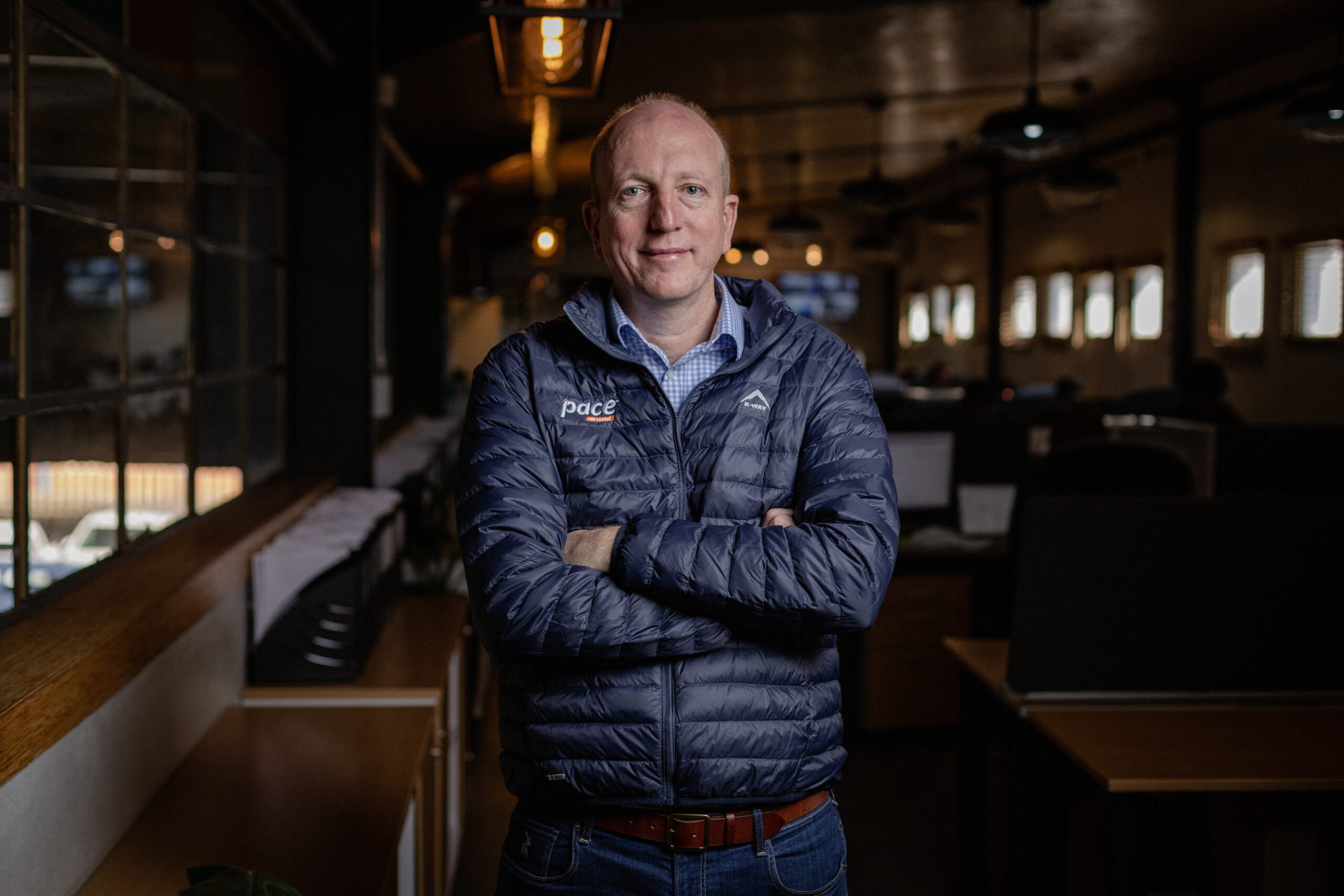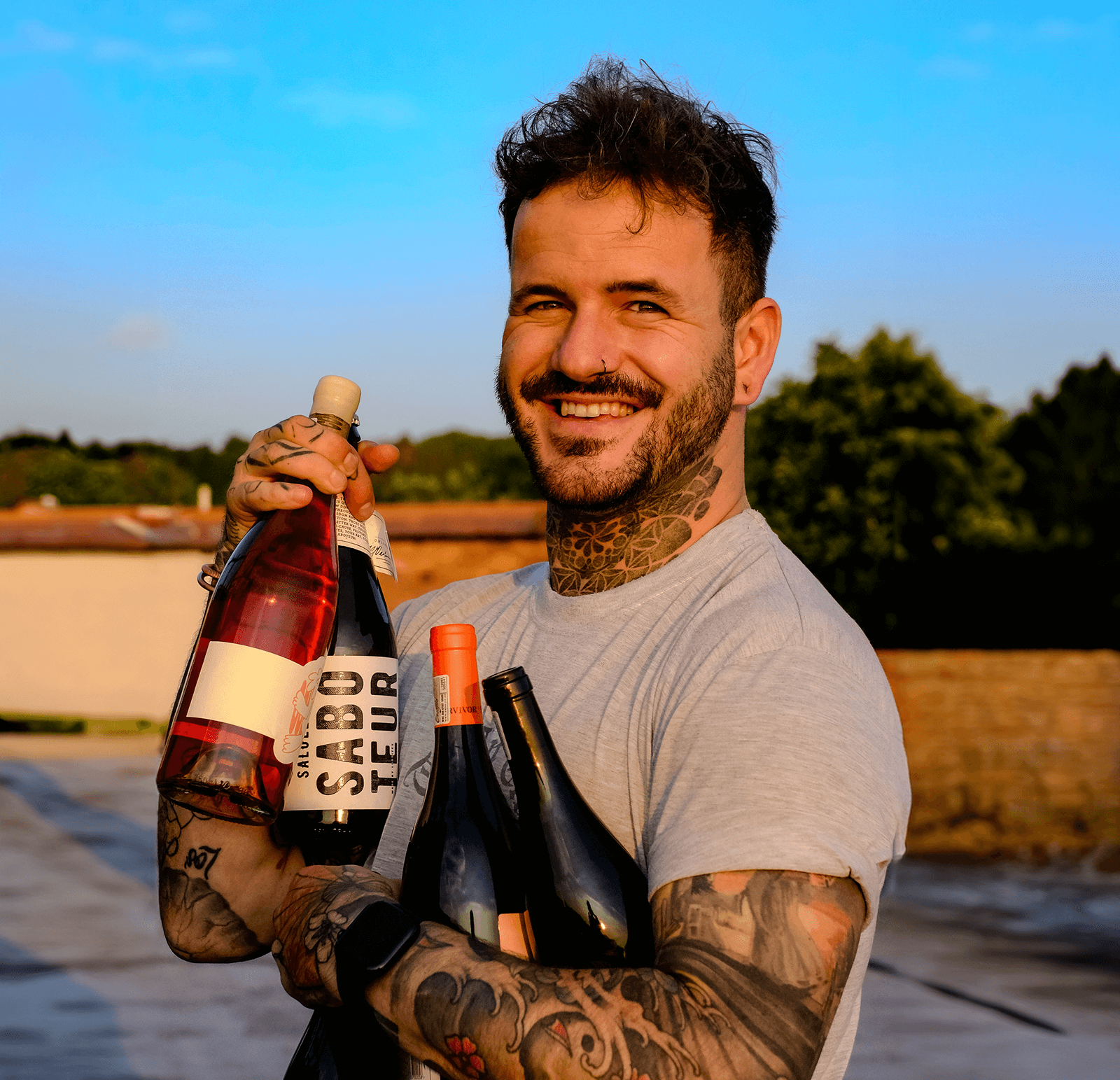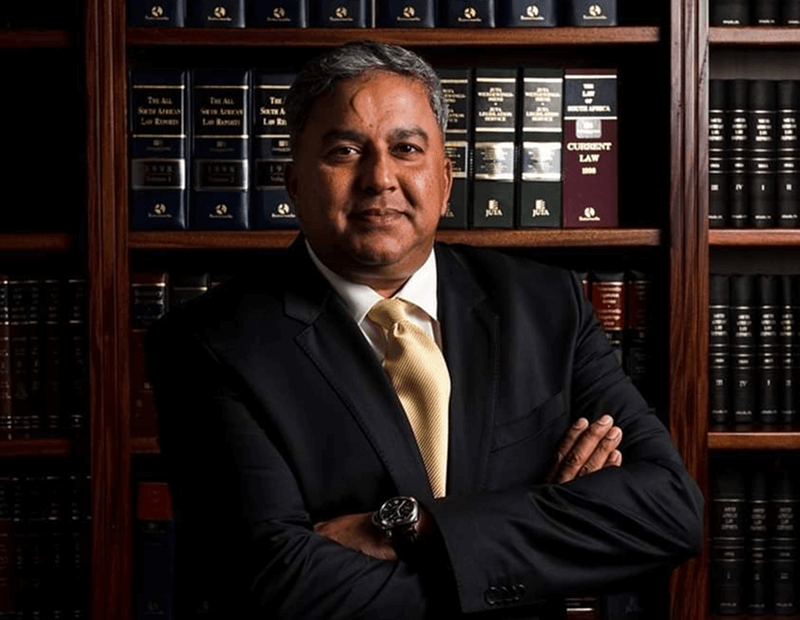How Quay 1 founder Ryan Greeff built a purpose-driven real estate brand—and why true leadership begins with helping others find their why.
Bryan:
Ryan’s story could easily be told through his accolades—surfing Dungeons, competing for national tennis titles, or selling luxury properties at an age when most people are still figuring out what they want to do—but that would miss the essence: his why. His most noteworthy element lies in his approach. A mix of focus, empathy, and relentless work ethic that’s helped redefine what modern real estate leadership looks like in Cape Town, South Africa.
As the founder and CEO of Quay 1 Properties, Ryan has built Cape Town’s foremost independently owned real estate firm on a simple principle—hard work done the right way, by people who care.
Bryan Welker and Stefan le Roux sat down with Ryan Greeff to talk about the rise of Quay 1 Properties, his philosophy of purpose-driven leadership, and how he’s using business as a force for community upliftment in South Africa.
GBJ: Cape Town seems to be having a real moment. What do you think is driving the city’s property boom?
Ryan:
Several factors. From a South African perspective, people are relocating from Johannesburg, Durban, and Port Elizabeth—places that have become harder to live in because of governance failures and infrastructure decline. Cape Town, by contrast, is clean, efficient, and has always been magnetically beautiful.
The city itself is well run by South African standards, and we enjoy a good level of service delivery and law enforcement. That’s made it a safe and aspirational place to live. Add to that the lifestyle—the beaches, the mountain, the restaurants—and it’s easy to see why demand continues to outpace supply.
Bryan: It reminds me a little of Aspen. We only have about 6,000 full-time residents, but the mountains and the natural limits drive value. Is that similar in Cape Town?
Ryan:
Exactly. We’ve got the ocean on one side and the mountain on the other, so development is naturally constrained. It’s a simple case of supply and demand. Like Aspen, we’re dealing with scarcity, and that scarcity drives value. The Europeans love Cape Town too, which keeps international demand strong. So while the rest of South Africa struggles with economic confidence, Cape Town enjoys this pocket of energy and optimism.
GBJ: How did you first get into real estate?
Ryan:
My family has been in real estate for about twenty-five years, so I grew up surrounded by it. After studying in Australia, I came back and tried a few ventures, but I kept gravitating toward property.
GBJ: And what drew you to real estate specifically?
Ryan:
You’re always navigating something new. You’re dealing with different strategies, different deals, different clients, and the market is never the same. Figuring out how to operate in the most effective way is a constant battle.
GBJ: You mentioned spending time in Australia. Did you bring anything back from that experience?
Ryan:
What really clicked for me when I was there was that I realised how traditional the South African industry still was. The average agent was pushing seventy, and don’t get me wrong, there are fantastic brokers amongst that cohort, but the business model hadn’t evolved in decades.
I saw an opportunity to bring in younger, tech-minded people and modernise the space. Early on, I sold one of Cape Town’s most expensive penthouses at the age of twenty-three. That deal made me realise not only that I belonged in the industry, but that the market was ready for a new generation of brokers.
GBJ: And that became the foundation for Quay 1?
Ryan:
Yes. I wanted to build a culture that rewarded ambition and intelligence, not just time in the game. We recruit young graduates—some straight out of UCT, some even from high school—and train them properly.
They get access to tech infrastructure, mentorship, and professional support, which allows them to compete at a high level early on. The goal is to make them feel like professionals, not just salespeople. When I started Quay 1, I wanted to create the kind of company I would’ve wanted to work for.
GBJ: You mentioned tech. How has that changed your world?
Ryan:
It’s been transformative. We’re automating as much as possible—lead generation, accounting, even aspects of client communication. The goal is to cut the time it takes from first contact to close. If that used to take twenty hours, we want it to take ten.
That efficiency gives brokers time to focus on relationships, which is where real success happens. The next phase is leveraging AI to create even more intelligent systems that handle repetitive work and give our team back time to build trust.
Bryan:
I love that. At WDR Aspen, we deal with a lot of brokers, and I always tell them there’s no silver bullet—no ad campaign that magically delivers $20 million listings. It’s about building networks. Does that hold true for you?
Ryan:
Absolutely. There’s no shortcut for hard work. We generate plenty of leads, but at the end of the day, the brokers who pick up the phone and talk to people are the ones closing deals. I tell our team: You can have all the tech in the world, but if you’re not talking to people, you’re invisible.
GBJ: How big is Quay 1 now?
Ryan:
We’re sitting at around 200 people, about 150 brokers and 50 support staff across five offices. Since COVID, office culture has shifted. It’s become more of a clubhouse; people come in a few days a week, work remotely the rest.
Our next major focus is franchising. We’re expanding along the West Coast and down to Hermanus and up towards Langebaan. My vision is to have twenty franchise offices within the next two years.
GBJ: That’s what we want to hear. What challenges keep you up at night?
Ryan:
Recruitment. Good brokers don’t grow on trees, and it takes time to train great ones.
GBJ: What do you look for in a new hire?
I look for three traits I learned from Warren Buffett—hard work, integrity, and intelligence. If you lack integrity, the other two will kill you. Everything else can be taught. But getting people to truly put in the work is the hardest part. You can’t teach hunger.
And that ties into a broader challenge—creating a culture where young people value perseverance over instant gratification. The ones who do, thrive.
Bryan:
Exactly, it’s a sentiment that we come across so often in our interviews: The idea that you can’t teach hunger, it has to come from within. And the fact that drive is one of the primary qualities that most successful founders and CEO’s look for in recruits.
And let that be a beacon to any young person reading this—the one thing a potential boss is looking for is the one thing that is completely within your control. It’s not a qualification or experience; it’s that willingness to work hard and go the extra mile.
GBJ: Do you have any advice for budding entrepreneurs?
Ryan:
Every entrepreneur goes through seasons. The first few years are about relentless hard work, truly grinding it out. I see a lot of young business owners expecting flexibility, fast success, or thinking now that they’re the boss, they can take weekends and chill, but that’s not how it works. Those early years are a season of sacrifice. Later, it becomes about delegation and learning to trust your team.
And above all, it’s about having a strong why. If it’s just about money, you’ll burn out. Purpose keeps you going. For me, that purpose extends beyond profit—it’s about employment, mentorship, and community upliftment. It’s about proving that progressive business models can win in South Africa.
GBJ: Can you talk a bit more about community upliftment?
Ryan:
It’s a huge part of who we are. We support around fifteen to twenty community projects at any given time—from beach clean-ups to animal welfare and homelessness initiatives. One of the programmes we partner with, called U-Turn, helps people transition off the street and become job-ready.
It’s important to give back to the communities we serve. We can’t just take; we have to contribute. As business leaders in South Africa, we have a responsibility to uplift the people around us. I believe business—when done the right way—can be a healing force. Employment is empowerment.
GBJ: I’ve heard that you also spend time speaking to students about entrepreneurship. Tell me about that.
Ryan:
That began a few years ago with a project called Empowering the Youth. I visit schools and universities to talk about business and the opportunities in property. Many people think it’s only about selling houses, but there are careers in compliance, insurance, construction, law—you name it.
It’s about showing them the full ecosystem and encouraging them to think like entrepreneurs. Some of the students I met years ago now run their own companies, which is incredibly rewarding. It proves that when you light one candle, you can ignite many more.
GBJ: That’s brilliant. Do you think South Africa still offers those kinds of opportunities for young people?
Ryan:
Definitely. Not every niche has been filled. In South Africa, there are still vast gaps—you can build something meaningful if you work hard and stay ethical. The opportunities are there for anyone willing to reach out and grab them.
I always tell young entrepreneurs: this country rewards those who take action. Don’t wait for the perfect plan—start, adapt, and grow.
GBJ: Let’s finish on leadership. How do you define it?
Ryan:
For me, leadership is simple—lead by example. I try to be the hardest-working person in the room. If people can meet 80% of that energy, they’re doing well. And I believe in servant leadership—making sure your team knows you’re there for them, not above them.
One of the greatest portrayals of leadership ever recorded, in my view, is the depiction of Jesus in the Bible—and that isn’t necessarily a religious statement. For me, Jesus is the epitome of empathy, courage, and selflessness in service of others.
That example reminds me that humility isn’t weakness; it’s strength under control. People follow leaders who serve, not those who shout orders. My role is to unlock the why in others and help them become better than they thought they could be.
Bryan:
For Ryan, leadership is not about hierarchy; it’s about unlocking potential. Success isn’t measured in numbers or accolades, but in how many people he’s helped align passion with purpose. That selfless approach has shaped both his company and its impact on the community around it, proving that when leaders help others find their why, everyone rises together.
Every week, The GBJ editorial team sits down with some of South Africa’s best. With a tenacity and spirit that can create success out of nothing more than a glimmer of hope, we believe South African businesses deserve a platform to tell their stories.
Born from WDR Aspen, The GBJ wants to ask you: how are you telling your story? Reach out and let us help you with your voice.









